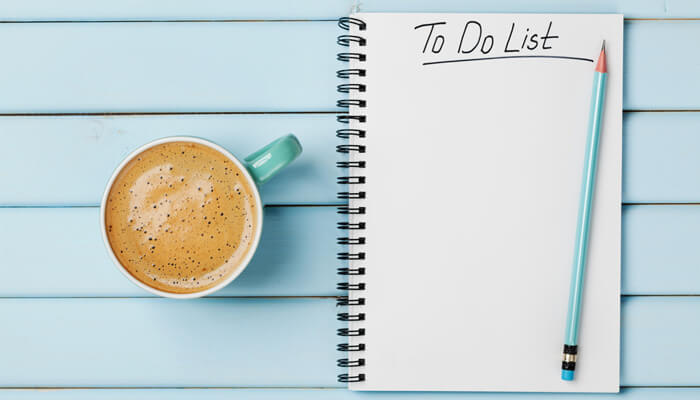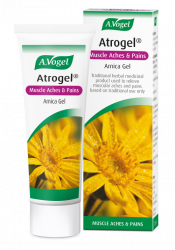Why do many older adults not exercise?
The World Health Organisation recently revealed that one third of adults in the UK are not getting enough exercise.1 This is a worrying statistic given that lack of exercise can contribute to a range of health conditions such as type 2 diabetes and cardiovascular problems.
Current guidelines suggest that adults need around 150 minutes of exercise a week but our reliance on cars to get around, as well as technology such as tablets and televisions, may explain why so many adults are not exercising enough. A range of health conditions that arise as we get older can also make it challenging to stay active.
Why is exercise important as we age?
1 – Keeps bones healthy
Low levels of physical activity are associated with reduced bone mineral density.2 We can, therefore, strengthen the bones with exercise. This is particularly important as we get older as we become more prone to conditions such as osteoporosis which weaken the bones.
2 – Relieves stiffness
Any form of gentle exercise can be really beneficial for stiff joints, a problem that gets more common as we age. The amount of synovial fluid, a lubricating liquid that allows the joints to move freely, declines with age. With less synovial fluid around the joints, pain and stiffness can arise. Exercise can help in this instance as it aids the production of synovial fluid, thus keeping the joins flexible and pain-free.
3 – Improves memory
Just as we see changes to the joints and bones as we get older, there can also be changes to the brain. This can cause forgetfulness and confusion, whilst others may find it harder to learn new things.3 In the over 65 age group, dementia is also a common problem – there are 850,000 people living with dementia in the UK.4
There is a lot of research out there to suggest that exercise is beneficial for memory. A study by the University of Columbia, for example, concluded that aerobic exercises can aid verbal memory and learning by increasing the size of the hippocampus (the part of the brain that controls these things).5
More recently, researchers at University College London found that watching television for over 3 hours a day could lead to poor memory amongst adults. The study suggested that watching television for such a long time stopped people doing more stimulating activities such as reading and exercising.6

4 – Boosts mood
Whether you are experiencing a mild bout of low mood, or a more serious mental health condition such as depression, exercise can be helpful. This is because exercise releases endorphins, also known as feel-good hormones, which can have a positive effect on mood.7
5 – It is social
If you’ve reached retirement and miss the social aspect of work then exercise can, once again, be beneficial. Classes and clubs provide the opportunity to meet new people out-with your usual network.
6 – Helps prostate health
Prostate problems such as benign prostatic hyperplasia (BPH) are more common amongst men over 50 and, whilst it may not resolve this kind of issue completely, exercise still has benefits to offer. Research suggests, for example, that physical activity could help to ease symptoms such as frequent urination and night time toilet trips, thus making them easier to manage.8 Not only this, the evidence shows that the more exercise you do, and the higher the intensity of the activity, the more positive the effect is on an enlarged prostate.9

7 – Eases symptoms of the menopause
Whilst many men deal with the problem of an enlarged prostate as they get older, women must contend with the menopause and the array of symptoms it causes.
The bones can become more fragile and susceptible to fractures during the menopause due to falling oestrogen levels. Exercise, however, will help to keep them healthy and strong. In addition, research shows that exercise may ease hot flushes!10
8 – Keeps the muscles strong
Muscle mass declines with age (sometimes as early as our 30s) and this can lead to weakness. This is known as sarcopenia and is often exacerbated by sedentary and unhealthy lifestyles. Something as simple as walking on a regular basis can help to counteract sarcopenia.
9 – Keeps you healthy
Finally, exercise has a range of other benefits for our general health that, regardless of age, should help us to do all the things we did in the past. It improves heart health, for example, thus reducing the risk of heart disease and high blood pressure, two problems that commonly occur as we get older.
10 – Helps aches and pains
If we fail to get enough exercise as we age then muscle atrophy can occur. This is when the muscles waste away leading to reduced strength and mobility. It is recommended that we complete regular exercise in order to prevent muscle atrophy.
My Top Tip:
Apply 2-10 cm of Atrogel between 2 and 4 times daily.
|
Finding the right exercise for you
If you have any existing health condition I would recommend speaking to your doctor or a physiotherapist before embarking on a new exercise plan. They’ll be able to offer personalised advice on suitable activities.
For those of you wondering how to exercise a little more, it is best not to push yourself too hard too quickly. Something as simple as 20-30 minutes of walking a day can offer many of the benefits I’ve listed above. Alongside this, you could try other gentle exercises such as swimming or cycling that work on strength and stamina. You can find some examples of low impact sports here.
If you already have a good level of fitness but just want to incorporate a little more exercise into your day-to-day routine then why not try something new? You are never too old to take up a new sport so, if there is something you have always wanted to do, now is the time! Joining a club is also a good way to stay active on a regular basis.
8 great exercises to do as you age
- Stretches
- Cycling
- Swimming
- Walking
- An exercise class
- Pilates
- Gentle weightlifting
- Tennis
Exercising regularly - my top tips!
Ok, so we know the health benefits of exercising as you age, as well as different types of exercises to do, but how exactly do you keep this up?
Exercising with friends is a good place to start. This keeps sport social, plus friends may encourage you to do more exercise, even when you don’t feel like it. It is also really important to pick an activity you enjoy, rather than doing it because you feel you should - if you don’t like a particular exercise then try something else instead!
If you’d like to read more about motivating yourself to workout then just read my blog on the topic. For now, though, happy exercising!
References
2 https://www.ncbi.nlm.nih.gov/pubmed/24735973
3 https://www.nia.nih.gov/health/do-memory-problems-always-mean-alzheimers-disease
5 https://bjsm.bmj.com/content/49/4/248
6 https://www.bbc.co.uk/news/health-47403429?intlink_from_url=&link_location=live-reporting-story
7 https://www.nhs.uk/conditions/stress-anxiety-depression/exercise-for-depression/
8 https://www.ncbi.nlm.nih.gov/pmc/articles/PMC4342314/








